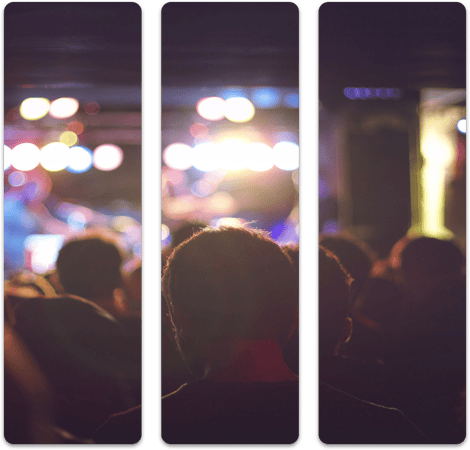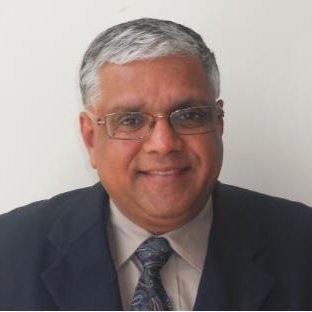About The Event

Tribology related Innovation funnel has four important stages - Discover, Design, Develop and Deliver. In the context of cooperation for innovation the universities have focused on discovery whereas the enterprises have focused on delivery for markets. We understand that universities and enterprises apply tribology to achieve different results. It is important to understand these differences and carefully analyze them to reduce the skills gap in Innovation.
Tribology Discussions allow participants to learn how the universities and enterprises view Problem Definition, Problem Diagnosis, Solution Design, Implementation and Evaluation.
The Last Speaker

Dr. K. Anand
Consulting Engineer GE Power, Managing the Center of Excellence IIT Madras and Deakin University, India
21st July: Tribology Discussions on Additive Manufacturing
2:30
-
3:15 PM (CEST)
Additive Manufacturing Concepts for Wear protection. Dr. K. Anand, GE Power
Component materials and manufacturing processes are designed primarily to meet requirements of strength, life and producibility. However surface degradation phenomena such as wear take place under conditions of severe localized deformation at high strain rates. Surface engineering has been a commonly used method t address wear. In this talk various concepts of material compositions and microstructures for different forms of wear will be presented and their amenability to be produced by additive manufacturing processes including laser based on cold spraying shall be discussed. Where applicable case studies and industrial practices that come close to an additively manufactured process combination shalee be presented.
3:15
-
3:30 PM
Tribology Discussions with Dr. K. Anand
Dr. K. Anand will inspire the participants by sharing his personal and professional journey during this interview session.
14th July: Tribology Discussions on Transportation
1:30
-
2:00 PM
Lubrication Imperatives for Mobility Sector - Dr. Ramakumar, IOCL - India
After achieving the BS-VI/Euro-VI emission efficiency, attaining ever tightening global targets of CO2 emissions is emerging out as a new imperative for transportation industry . Regulators, OEMs, lubricant manufactures are now aiming at achieving fuel economy to meet the CO2 reduction targets. There are many pathways that one can adopt to reduce fuel consumption. These include new engine and transmission designs, new metallurgies, surface finish, coatings, new injection technologies, turbochargers and of course through engine and transmission lubricants. Lubricants for mobility sector include Gasoline Engine Oils (PCMOs), Passenger car diesel engine oils (PCDEOs), Heavy Duty Diesel Engine Oils(HDDEOs), Motorcycle Oils(MCOs), tractor lubricants and Marine Cylinder oils for large container ships and super tankers. These lubricants were upgraded and customized for fuel economy and emission compliance benefits as the vehicle technology evolved to meet regulations. New vehicle technology has shifted surface tribology towards more boundary lubrication regime as new designs are compact, offer high operating temperatures and pressures. Fuel Economy Regulations require viscosity reduction for reducing hydrodynamic friction. Lubricant at reduced viscosity has to face tough challenges of hardware durability by maintaining the right film thickness with an effective interplay of key ingredients like base oils and performance additives and mainly better anti wear protection is required. Friction Modifiers are key additives in automotive lubricants to take care of boundary friction thereby achieving FE targets of original engine manufacturers. Endurance of after treatment devices for continued emission reduction capabilities adds a new dimension and forces one to adopt low sulphated ash, phosphorus and sulphur containing additive chemistries.Optimisation of the above key ingredients of an engine lubricant especially to find out favourable synergistic combinations to meet the overall objectives without compromising the durability aspects is a formidable task. It requires a great amount of tribo-screening at simulated conditions of surface contacts miming the actual engine conditions. Sound knowledge and design of tribology experiments are the key enablers in the lube development
2:00
-
2:30 PM
Bearings in Electric Vehicles: Still There? - Dr. Sergio Santo Domingo, Fersa Bearings - Spain
The automotive sector is immersed in a major restructuring process in conjunction with the technological advances that are taking place. There are four megatrends that apply to the sector: mobility, autonomous driving, digitalization and electrification. When it comes to electrification, systems and components will be widely affected. When it comes to components, bearings are on the line of fire. According to the experts, serial production BEV are likely to have at least 47% and potentially up to 75% fewer bearings than ICE cars. However, there is still hope for the bearing industry. The presentation will describe some technological drivers posed by electrification and discuss some trends to face those challenges.
2:30
-
3:00
Tribology Discussions with Dr. Ramakumar and Dr. Sergio
Dr. Ramakumar and Dr. Sergio will inspire the participants by sharing their personal and professional journey during this interview session. Participants can share their questions during this discussion.
30th June: Tribology Discussions on MetalForming
1:30
-
2:00 PM (CEST)
Lubrication in Demanding Metal Forming Applications - Prof. Jens Hardell , LTU - Sweden
In metal working applications, tribology plays a crucial role for the robustness and efficiency of the process. An optimum friction level is important as it influences the tolerances, final geometry and quality of the produced component. Minimising wear of expensive tooling is necessary to ensure low production costs and reduced process downtime due to maintenance. For conventional metal working operations, efficient lubrication solutions exists. However, in case of demanding applications such as forming of high-strength materials, tribologically challenging materials such as stainless steel, and hot forming processes, the available options for friction and wear control are few and sometime not existing at all. This talk will discuss the tribological challenges in selected demanding metal forming applications, show examples of potential solutions for friction and wear control, and present an outlook for future research needs.
2:00
-
2:30 PM (CEST)
Tribology in Hot Forming of Aluminium Alloys - Dr. Yogendra Joshi, ITPL - UK
High strength aluminium alloys are notoriously difficult to process even at elevated temperatures. In hot sheet metal forming, lubrication is a key enabler in harnessing the advantages offered by patented technologies such as HFQ®. Tribological systems that offer consistent and stable friction simultaneously minimising die wear are of paramount significance. Thus, academic research is focused on the development of novel lubricants and coatings. However, these only offer half the solution in an industrial setting due to stringent post-forming part quality requirements set by aerospace and automotive OEMs. The presentation shall provide insights into lubrication challenges in the industry and discuss ways to address them from an engineering perspective.
2:30
-
3:00 PM (CEST)
Tribology Discussions with Prof. Jens and Dr. Yogendra.
Prof. Jens and Dr. Yogendra will inspire the participants by sharing their personal and professional journey during this interview session with Dr. Deepak. Participants can share their questions during this discussion.
16th June: Tribology Discussions on Nanolubricants.
1:30
-
2:00 PM
Nano-particles of PTFE as Extreme-pressure additive (EPA) in oils - Prof. Bijwe, IIT- Delhi
The talk focusses on the benefits endowed by the inclusion of nano-particles of PTFEover micro-particles. It also elaborates how the efficiency of NPs depends on the selected base oil. It also discusses on the optimization of doses of NPs for best performance along with mechanisms involved in functioning.
1:30
-
2:00 PM
Nanotechnology Trends in Lubricant Market. Opportunities and Issues - Dr. Diloyan, NIS - USA
Industries, for decades, widely use solid particles to enhance its tribological properties such as extreme pressure (EP), wear and friction. Nanomaterials have emerged as potential environment friendly lubricant additives to upgrade performance of conventional lubricants such as automotive oils, industrial oils, grease, and metal working fluids. Their various advantages include submicron size, large surface area, thermal stability, high reaction rate with the surface without induction period. These advantages translate into longer equipment operation, increased fuel efficiency and extended maintenance intervals. Although nanoparticles are widely used in many applications, such as cosmetics, polymers, electronics etc., lubrication market is quite new to this technology. One of the issues is that “nanotechnology” as a term is used primarily for marketing purpose, putting science aside.The current article designates on the benefits of nano and submicron materials as lubricant additives and their applications in various lubricating fluids.
1:30
-
2:00 PM
Tribology Discussions with Prof. Bijwe and Dr. Diloyan
Prof. Bijwe and Dr. Diloyan will inspire the participants by sharing their personal and professional journey during this interview session. Participants can share their questions during this discussion.
Request Registration
Space is limited. Please fill in the registration form to secure your spot for the event.
.png?width=1667&height=400&name=Ducom%20-%20Logo%20-%20Full%20-%20Vector%20(White).png)